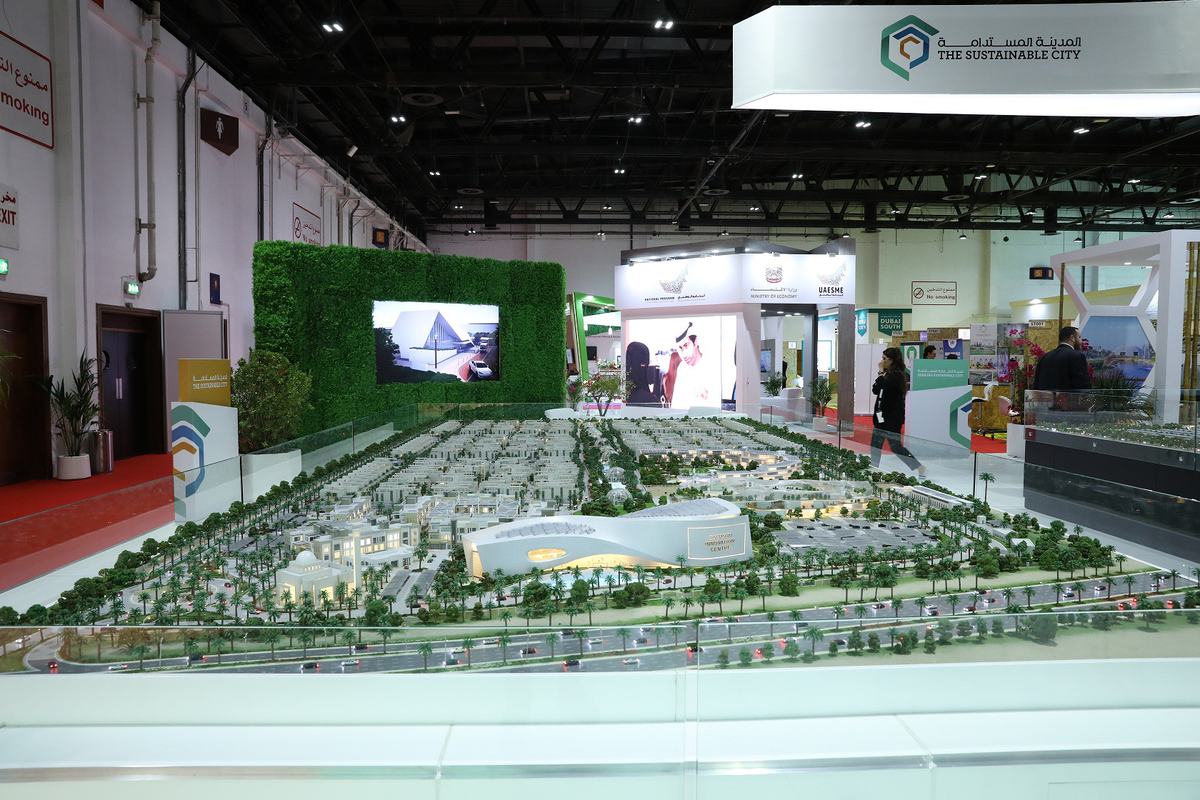The global market for smart city information and communications technology (ICT) is forecasted to hit the USD 994.6-billion mark by 2023 from USD 476.7 billion in 2018. This was released in conjunction with Future Cities Show, which runs in parallel with the Annual Investment Meeting, held until 10th April in Dubai. The show this year runs under the theme ‘Propelling Globalization through Digital Transformation’.
One of the key highlights of this year’s edition is Geospatial and 5G technologies as well as virtual reality and augmented reality, which play an important role in enabling the growth of smart cities and are seen as fundamental backbones of smart city projects.
Some of the key participants at this year’s edition include companies as Green Mobility – a flexible mobility solution that compliments the city’s existing mobility offers. The app gives the users an overview of the cars in real time showing exact location and availability. Omniflow was another attention grabber at the show. The company is a smart energy platform for IOT applications, powered by Wind and Solar with battery storage.
Speaking on the sidelines of the event, a spokesperson from Omniflow said, “This is our first time here in the ME, although we are present in over 22 countries such as US, China and Europe. The Middle East market, especially the UAE, is very tuned in to new technology, is receptive and willing to experiment, and becoming very, very ‘smart’. We hope to find a good partner. We’ve already had an enthusiastic response and are confident that this show will serve as a strategic platform to close a deal.”
The show also witnessed participation from companies as Dyvolve, which is a trusted advisor to a number of organisations in a wide range of industries. The companyis committed to helping clients achieve tangible competitive advantage while progressing on sustainability agendas. One of the spokespersons from the company stated that the Middle East is a rapidly growing market with very open markets and liberal policies. He emphasized that the UAE and Dubai, in particular enjoy a very supportive government and is fast integrating the latest technological advancements into its social fabric.
Another important participant at the show was CIMCON- the world’s leading provider of software powered lighting controllers and Internet of Things (IoT) enabled Smart City lighting management solution. The advantage of Cimcon systems is that it can work on anyone’s lighting systems anywhere, and is fitted with a sensor called Near Sky within the street lights which take power from itself, so there is no need to drill the surface of these lights, like in the conventional method. This sensor helps to power other devices. This makes a city safe and smart. These sensors can be detached and attached to other devices as well. So instead of having multiple platforms, Cimcon bring everything onto one platform.
While technology formed the focus of the Future Cities Show, Sharjah’s Sustainable city, which is developed by Sharjah Investment and Development Authority (Shurooq) in partnership with a Dubai real estate company was another highlight of the event. The Sustainable City is a working model of what the future could look like. It is a modern application of social, economic and environmental sustainability in the built environment achieved through innovative design, stakeholder engagement, and future monitoring to sustain itself. As the first operational Net Zero Energy city in Dubai, The Sustainable City is modelled to become an international showcase for sustainable living, work, education, and recreation across the region and the world in the coming years.
Future Cities Show will focus on five leading future city solutions, namely AI, blockchain, smart infrastructure, smart mobility, and sustainability. It will also provide a platform to ensure that the latest technological projects will have the opportunity to secure medium- to large-scale investments.
